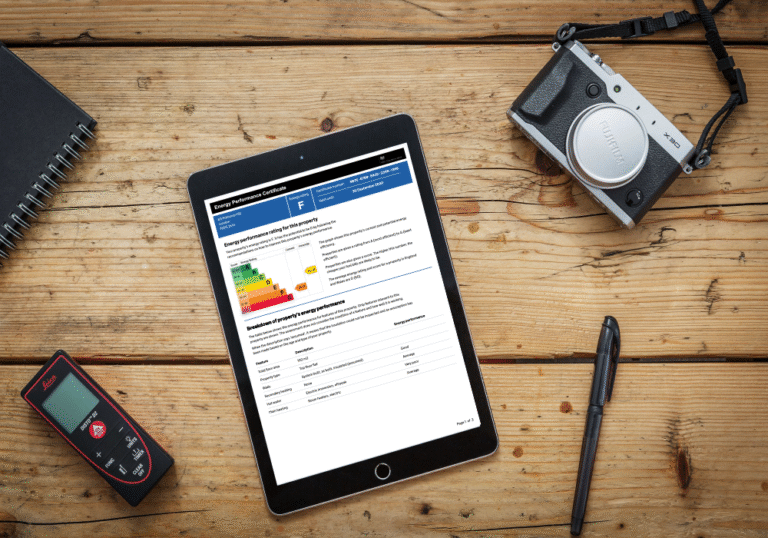Yes, an EPC course can be worth it. It offers valuable insights into energy performance.
It also enhances career prospects in real estate and construction. Energy Performance Certificate (EPC) courses are gaining popularity. They provide essential knowledge about energy efficiency in buildings. With growing emphasis on sustainability, understanding EPCs is crucial. These courses cover energy assessments, legal regulations, and technical skills.
Professionals in real estate, construction, and energy sectors benefit from this expertise. The demand for energy-efficient buildings is rising. Having EPC certification can open up new job opportunities. It also equips you with the skills needed for future challenges. So, if you’re considering expanding your skill set, an EPC course might be a good choice. Let’s explore if it aligns with your career goals and interests.

Epc Course Essentials
The EPC course teaches important ideas. Energy efficiency and sustainability are key. Students learn how to save energy. They study ways to reduce waste. Understanding these concepts can help the planet. It can also save money.
The course has different parts. It begins with basic lessons. These lessons cover simple topics. Next, students move to advanced topics. They study real-life examples. This helps them understand better. There are also tests to check learning. By the end, students feel more confident. They know more about energy and the environment.
Career Opportunities
The EPC course opens doors to many jobs. Energy assessors are in high demand. Real estate agents need EPC skills too. You can work in construction or property management. Government jobs also require EPC knowledge. Each role plays a part in energy savings.
There is a growing need for EPC experts. Buildings need energy checks to save costs. New laws require these checks. Green energy is becoming important. This means more jobs for EPC-trained people. Helping the planet is a big part of this work. It’s a field with a bright future.
Skill Development
EPC courses teach important technical skills. Students learn about energy efficiency. They also study building regulations. These skills help in many jobs. You can understand energy-saving tips. This helps reduce bills. Learning these skills is useful and fun.
Soft skills are also part of EPC courses. Students practice communication. They learn to work in teams. These skills help in any career. Understanding others is key. It makes team projects easier. Problem-solving is another focus. It helps tackle real-world issues. Soft skills make you a better worker.
Networking Potential
Building Connections during an EPC course is valuable. Students meet many people. These people may have similar interests. This helps in making new friends. It can also lead to future job chances. Talking and sharing ideas is a big part of the course. Students can learn from each other. This makes learning fun and engaging. Having strong connections can support career growth.
Collaborative Learning is key in EPC courses. Students often work in groups. They solve problems together. This builds teamwork skills. Working with others also grows understanding of different views. Everyone brings their unique ideas. This helps the whole group learn better. Sharing tasks makes big projects easier. Learning together makes knowledge stronger.
Financial Considerations
EPC courses can be expensive. Prices vary depending on the provider. Some courses cost more than others. Always check what is included in the price. Some offer extra materials or support. Comparing different providers is a smart move. You might find cheaper options with similar quality. Sometimes, more expensive courses offer better value. It’s important to weigh cost against benefits.
Completing an EPC course can bring benefits. It can help in getting better jobs. Increased earnings is a possible outcome. Many employers value this certification. It can lead to promotions. Consider potential salary increase after the course. Calculate your expenses and compare with expected gains. This helps understand if it’s worth it. Think about long-term benefits too. Skills learned can be useful for many years.

Personal Growth
Epc courses help people feel sure about themselves. Students learn new skills. This boosts their self-esteem. Speaking in front of others becomes easy. Classes teach how to handle tough questions. This builds confidence. People feel brave to try new things. Courses help in real life too. Students become more comfortable in groups. They feel sure of their own ideas. This makes them proud.
Leadership skills grow in Epc courses. Students learn to guide others. They practice making good choices. Helping teams is a big focus. Courses teach how to listen well. This is key for leaders. Students learn to encourage others. They become strong team players. Courses also teach problem-solving. Leaders need this skill. Students feel ready to lead.
Comparative Analysis
EPC courses focus on energy performance. Other courses might teach different skills. EPC helps in understanding energy efficiency. It’s useful for those in the construction field. Other courses might not cover these specific topics. Learning about energy can be important for jobs.
EPC knowledge is useful in many countries. Energy laws are changing often. People need to know how to save energy. Other courses might not be as relevant now. EPC courses provide practical skills. These skills help in real-life situations. People with EPC knowledge can find better job opportunities.
Real-world Applications
An EPC course offers hands-on experience. Students learn by doing real tasks. This helps them understand the job better. They face actual problems and solve them. Such practice is valuable in any career. Students gain skills that books can’t teach.
Learning project management is crucial. Students manage projects from start to end. They learn to plan, organize, and execute. This includes setting goals and meeting deadlines. These skills are useful in many jobs. Good management skills help in leading teams. They ensure tasks are done well.

Frequently Asked Questions
Is It Hard To Be A Domestic Energy Assessor?
Becoming a domestic energy assessor requires training and certification. It’s not overly difficult, but involves learning energy efficiency standards. Good communication and analytical skills are essential. With dedication, one can succeed in this field.
How Much Does Epc Cost?
EPC costs can range from $100 to $300, depending on property size and location. Prices vary by provider and region. It’s advisable to compare quotes from multiple assessors to find the best deal. Always ensure that the assessor is accredited for accurate and reliable results.
Do I Need An Epc?
An Energy Performance Certificate (EPC) is required when selling or renting a property in the UK. It provides information about energy efficiency. Landlords and homeowners must have a valid EPC to comply with legal requirements. Check if your property needs an EPC to avoid penalties and ensure compliance.
What Is The Reason For Epc?
EPC, or Engineering, Procurement, and Construction, streamlines project delivery. It ensures efficient planning, cost control, and timely execution. This approach integrates engineering, procurement, and construction phases, reducing risks and enhancing project management. EPC contracts provide a single point of responsibility, improving communication and minimizing delays in construction projects.
Conclusion
Deciding on an EPC course needs careful thought. Consider your career goals. Think about your interest in energy efficiency. An EPC course offers valuable skills. It can open doors to new opportunities. Gain knowledge about energy performance. Learn how to assess buildings.
Enhance your resume with specialized training. Consider the time and cost involved. Review the course content and requirements. Talk to professionals in the field. Weigh the benefits against your current situation. Make an informed decision. Your future in energy performance could start here.
